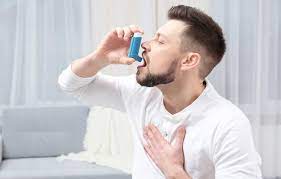Chickenpox
Chickenpox
(चेचक,छोटी माता)
Chickenpox is a viral disease caused by a Vericella zoster virus (V.Z.V). It affects those with a weakened immune system. It can cause an itchy blister that first appears on the chest, face and back. The rash spreads all over the body causing 250 blisters. Chickenpox is extremely contagious and can spread easily in a household or to those with a weakened immune system.
It is a vaccine preventable disease occurring commonly in children. It is characterized by fever and pheomorphic rash in centripetal distribution. It causes many complications if it occurs in adults.
Introduction
Chickenpox in children is usually a very mild disease. It occurs less frequently in older children and adults, but if they get the disease, it is more extensive and causes a lot of discomfort to the patient.
Chickenpox is a viral infection and highly infectious. If one child gets the infection at home or in the school, those in contact with are likely to contact the disease after a period of 2-3 weeks. As the disease usually confers lifelong immunity, you are safe if you have had it before.
Onset and Course
Often, the first thing you notice one or two tiny blisters on the back of chest.. The child is otherwise normal. New blisters appear rapidly. The blister form crusts or scabs. Some children, specially older ones, may get high fever and look quite ill, while younger ones may have low fever or no fever at all. The rash of chickenpox usually begins within a day of a onset of fever, in the form of red spots that itch. Within a few hours, they turn first into small pimples and then into blisters on a red surface (almost like a due drop on a red leaf). The spots are very itchy. The blisters with clear fluid become cloudy within a day and then becomes crusted. While this is happening , new red spots or blisters may be noted in the nearby areas. Typically in a small portion of the body, you may notice the rash in different stages- the red spot, the clear blister, the cloudy blister and the crusted one-at the same time.
The rash is mostly confined to the chest, back, face and head. The legs and hands are generally involved. Spots may also appear in the mouth and vagina. Small glands often develop at the back of the neck and the armpits. The total period of illness is about a week or 10 days. While the disease may initially be confused with the insect bites or pimples. The rash of chickenpox keeps changing its characteristic very fast, while insect bites or pimples do not follow this pattern.
Once all the spots become crusted and no new crops appear, the patient is no longer infectious. He can infect others from a day before the spots are first noticed to the day all the spots are crusted. Once that happens, the child should be ready to go to school and play with other children. Unfortunately, in some school, the child is not allowed to join for 3 weeks till all the scabs or crust have fallen off. Please note that only in case if smallpox, which is now eradicated, the scab could infect others. Interested parents may consider meeting the school authorities in this connection so that children are not unnecessarily
kept away from school.
Symptoms
- Rash : Macular, Papular, Pustular , ultimately converted into crust.
- Fever
- Headache
- Cough
- Gastric discomfort
Chickenpox Facts
- Chicken pox can and does cause serious complications, even death, in otherwise healthy young people. It can also reactivate to cause Shingles.(Herpes Zoster). A reactivation of the chickenpox virus in the body, causing a painful rash.
- In Australia we have free vaccine available to protect ourselves, our families and our communities. It is recommended that families consider supplementing the one childhood dose funded by the government with one extra dose to increase the level of protection.
- It is important to maintain high level of vaccine induced immunity or the natural or potentially dangerous form of disease will once again find people to infect, and become widespread
Prevention
- Wash your hands with soap and water specially after visiting public places.
- Avoid direct contact with infected people.
- Use gloves and face mask while taking care of people with chickenpox.
- Maintain a healthy lifestyle to boost your immunity levels.
- Vaccination : Speak to your doctor.
Home Remedies for Chickenpox
- Use of Neem leaves is a good remedy.
- Sunshine helps in treating chickenpox.
- Epsom salt reduces itchiness and inflammation.
- Honey helps to reduce inflammation and irritation.
- Use of baking soda mix with a water is a good remedy.
- Coriander and carrot soup aids in treating chickenpox.
- Jasmine flowers and leaf provides relief from itching.
- Oatmeal bath reduces irritation and speeds healing process.
- Sandalwood essential oil improves skin and protects against infections.
Treatment
The spots of chicken pox are itchy. A daily bath helps because sweating increases the itching. Keep the child's nails short. Explain to an older child that he should avoid scratching because it may leave behind scars. For smaller children, mittens may be used at night. If itching is severe, apply cool packs of cloth soaked in water from boiled and strained Neem leaves.
Plain calamine lotion applied on the spot also reduce itching. It is not advisable to use calamine mixed with other ingredients. Neem leaves may also be spread on the bed sheet. If the itching is very severe, your doctor may prescribe an antihistamine preparation to be given by mouth. If the fever does not bother the child , avoid using any drug. If required, a paracetamol preparation may be used to lower the temperature. Never give Aspirin to a child suffering from chickenpox or influenza, because it may lead to a serious disease called Reye's Syndrome. No diet restrictions are required. The child should be allowed to eat his usual healthy nutritious food. If he does not feel hungry, make sure he has enough of liquids including fruit juices, coconut water and plain water.
https://madhuchhandacdmo.blogspot.com/2021/02/chickenpox.html









.jpeg)
Comments
Post a Comment